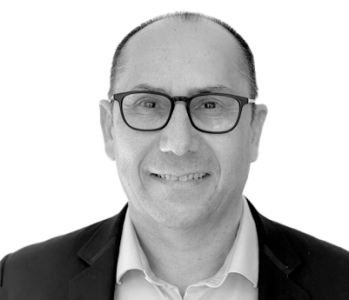Building together
Good faith imposes responsibilities and practices. It can’t be dictated unilaterally. It must be worked on, embodied and measured.
We’ve been working with our customers and suppliers for a very long time, and our good faith in a common search for impact is legitimate and credible.
This means developing joint responses with social economy companies and our entire ecosystem of customers, suppliers and builders, who are our stakeholders in the search for impact solutions.
It extends into action which is illustrated by the proof of what we say and want: both for the environment and for society.
Good faith means working sincerely and together with our customers on long-term contracts which provide a framework for our shared impact: expectations in terms of social impact and the need to take the environment into account.
We believe that the lasting relationships we have been building with the social economy sector for decades are mutually beneficial because they are based on this value of good faith. This is reflected in a culture of caring for people who are far removed from employment or who are disabled.
Proof
Refurbishing: the mission
Our good faith requires us to be in line with precise objectives measured by third parties in terms of environmental and societal impact. Econocom Factory is an Econocom subsidiary and French specialist in the refurbishment of mobile hardware and is a perfect illustration of this, with the Smaart brand. It has followed a structured process to become a mission-driven company and to include this in its articles of association.
Different market maturities
of French people have bought or intend to buy a refurbished phone
of French people have bought a refurbished phone
of French people have bought a refurbished computer
of French people have bought or intend to buy a refurbished computer
Barometer SMAAART - IFOP 2022
A mission-based company?
This means a company which has a social and environmental purpose as well as a profit-making one - with statutory commitments.
What are Econocom Factory's social and community objectives?
help maintain and strengthen regional cohesion by supporting the local economic fabric through job creation
provide support for people in vulnerable situations;
contribute to sustainable development, energy transition and solidarity
raise awareness among all stakeholders of the need to respect the environment and consume responsibly
Jean-Christophe Estoudre

Our direction is right and recognized
The choice to become a mission-based social and solidarity company is a long-term commitment where virtuous refurbishment is fundamental. The refurbishment and resale market is structured around labels which are quality certifications. We already meet the requirements of non-financial reporting, which will apply from January 2024.
Jean-Christophe, what’s become clearer in definitions of refurbishing services? Please could you explain what it changes for us and our customers?
With France’s ‘AGEC’ law, designed to fight waste and promote the circular economy, and the country’s ‘REEN’ law, designed to reduce the environmental footprint of digital technology, French legislation has given legal weight, by decree, to use of the terms ‘refurbished’, ‘refurbished product’, and ‘refurbished in France’.
A second-hand product or spare part, as defined in Article L. 321-1 of the French Commercial Code, can be considered a ‘refurbished product’ or labelled with the term ‘refurbished’ when the following conditions are met:
1° The product or spare part has undergone tests on all its functionalities to ascertain whether it meets all legal obligations in safety and use that a consumer can legitimately expect;
2° If need be, the product or spare part has undergone one or several operations to restore its functionalities. These operations include deletion of all saved or stored data relating to previous use or a previous user before the product or spare part changes owner.
Furthermore, to avoid consumers being misled about the characteristics of a refurbished product, this decree forbids any reference to a new product and limits the label ‘refurbished in France’ only to refurbishing that is completely carried out on French soil. These rules also apply to spare parts.
The French market of refurbished products is therefore geared to giving clients indicators that help consumers choose high-quality products with a proper social and environmental approach.
What do the certifying labels ‘Qualicert’, ‘RecQ’ and ‘Service France Garanti’ bring us? What do these certifying labels tell our customers about us?
Qualicert: Qualicert certification for refurbishing
The ‘Qualicert’ certification for refurbishing is a professional benchmark that attests to the quality of a product’s refurbishing process. The certification was developed by industrial players in the sector. It gives a firm official recognition and tells its customers that it takes refurbishing seriously.
The SGS Qualicert certification of services, based on the French accreditation standard ‘RE/SIR’ for refurbishing, allows SMAAART to guarantee that its process for procurement, refurbishing and sales is of a good quality.
RecQ: SMAAART has been given the certifying label RecQ: High-quality refurbishing
The certifying label ‘RecQ’ is supported by DEKRA Certification. It guarantees specific criteria in the quality of used products refurbished by SMAAART and it provides consumers with clear information on the real state of a product and its components, accessories, guarantees and after-sales service to reassure consumers.
Service France Garanti
The certification ‘Service France Garanti’ reassures consumers that SMAAART products and services (customer service) are from a firm where 90% of the workforce is bound by an employment contract under French law. By choosing SMAAART, our consumers can rest assured that they are taking part in the circular economy through short supply chains and that they are helping create jobs in France.
How do you become a committed player in the social and solidarity economy? And why choose to adopt the status ‘entreprise à mission’ – France’s state-accredited status for firms with a responsible purpose – that you’ve had for over two years? What have you learned with this choice and what’s your aim for the coming years?
In 2020, Econocom Factory was given France’s state-accredited status for firms with a responsible purpose: ‘entreprise à mission’. This was a natural choice: our social and environmental commitments have always been part of our DNA. In 2023, we underlined our social commitments by becoming a firm in the social and solidarity economy.
Given that just the production phase of smartphones, computers and tablets represents over 80% of their carbon footprint, it’s vital to reuse such devices.
So, SMAAART has committed to four environmental aims to reduce the impact of digital technology, help save resources, reuse waste, and raise public awareness.
But beyond its environmental commitment, SMAAART has also set itself social aims to support local and French jobs and provide unskilled workers with in-house training. Our plant near Montpellier in the south of France brings together around 130 employees and includes a training centre – SMAAART Académie – that trains workers to take on versatile operational jobs. These inclusive training courses are open to people shut out of the jobs market and whose unemployment benefits are ending.
For our customers, we meet the non-financial reporting standards of the CSRD (Corporate Sustainability Reporting Directive), which has been gradually applied since 1 January 2024.
Boldness, good faith or responsiveness: which of Econocom’s three values will help us apply our impact strategy better and make it go further? If so, how?
All three of these values are vital for applying our impact strategy and they’re interrelated.
Boldness is what characterises any entrepreneur. It’s what prompted us to buy back our firm with our severance pay 12 years ago. It’s also what drives me to meet tomorrow’s challenges so we can expand our firm, still in line with our social and environmental convictions, and make refurbishing a virtuous sector.
Good faith towards consumers is what drives us to offer our customers ethical products with proper traceability: high-quality products with 24-month warranties.
And responsiveness is crucial in a nascent sector like ours: we have to meet customer needs in the market of refurbished products with the same standards that they would expect from the market of brand-new products.



